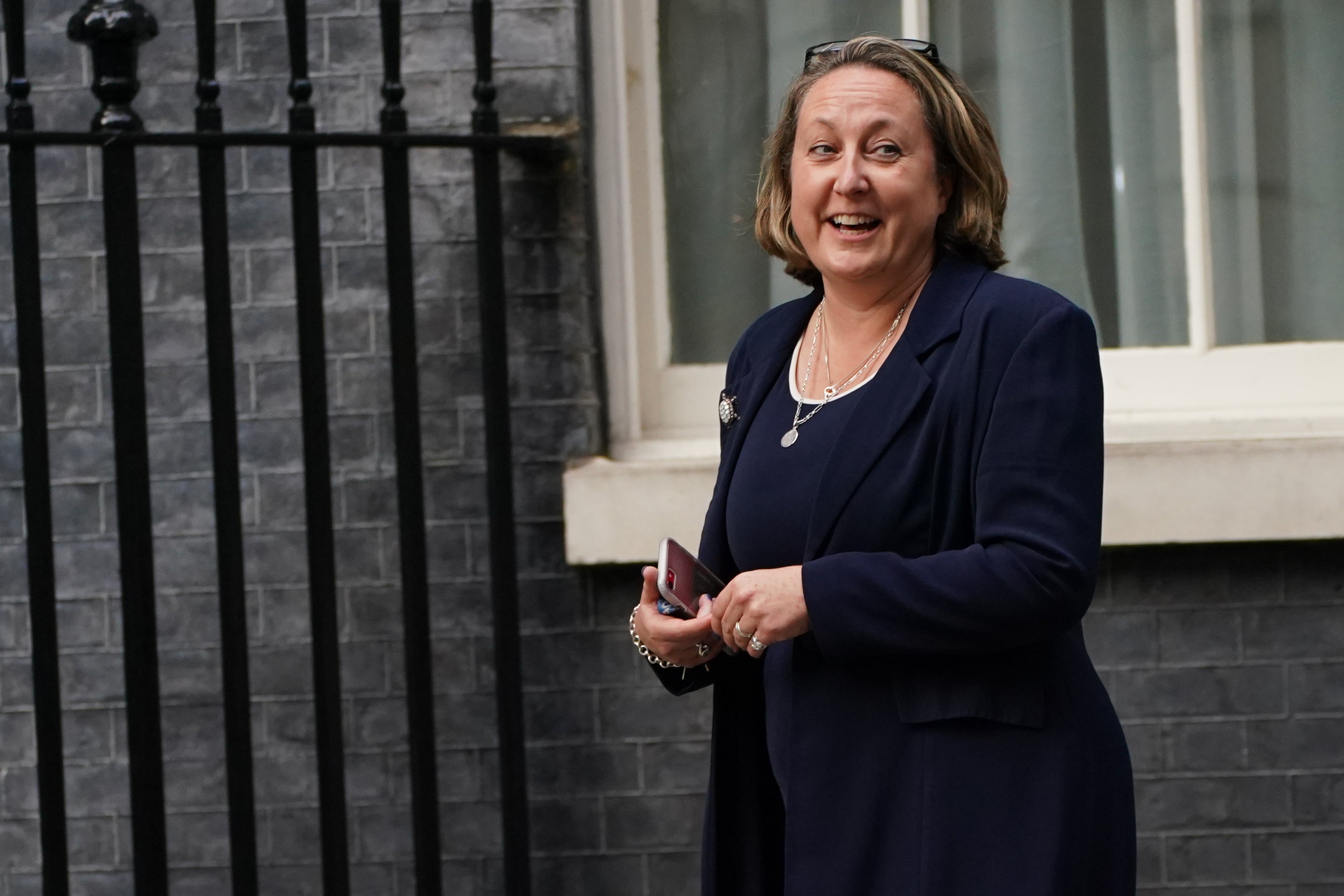No downsides to New Zealand deal, says Trade Secretary
Anne-Marie Trevelyan said there will be ‘protections’ for farmers written into the agreement.

Your support helps us to tell the story
From reproductive rights to climate change to Big Tech, The Independent is on the ground when the story is developing. Whether it's investigating the financials of Elon Musk's pro-Trump PAC or producing our latest documentary, 'The A Word', which shines a light on the American women fighting for reproductive rights, we know how important it is to parse out the facts from the messaging.
At such a critical moment in US history, we need reporters on the ground. Your donation allows us to keep sending journalists to speak to both sides of the story.
The Independent is trusted by Americans across the entire political spectrum. And unlike many other quality news outlets, we choose not to lock Americans out of our reporting and analysis with paywalls. We believe quality journalism should be available to everyone, paid for by those who can afford it.
Your support makes all the difference.The Trade Secretary said there “isn’t a downside” to the UK-New Zealand trade deal as she was challenged by MPs about the impact the agreement will have on British farmers.
Anne-Marie Trevelyan looked to allay fears that New Zealand meat produce could flood the UK market after the two countries reached an agreement in principle on a free trade deal last month.
The Government has said the deal will cut red tape for businesses and end tariffs on exports but the National Farmers’ Union has warned there is a “huge downside” to the accords with both Australia and New Zealand.
I’m very comfortable that it is a good deal
International Trade Committee chairman Angus MacNeil added to that criticism during a hearing on Wednesday, telling the Cabinet minister he believed Wellington was “30 times happier” about the terms of the bilateral trade deal than the UK.
But Ms Trevelyan – who was promoted to her Cabinet job during the September reshuffle – told the Commons committee the deal was “great” for farmers and that “protections” for the sector would be written into the terms.
“I think this is great for farmers and I think it is a fantastic deal for removing tariffs on all food and drink exports, from gin and chocolates, to pork and wine,” she said.
“There is a great range of liberalisation on all of those.
“We will include protections for our agriculture industry where there are sensitivities – a range of tools to defend British farmers against any unfair trading practices that could lurk, and those things like tariff liberalisation on sensitive goods like beef and lamb will be staged over time.
“That creates a level of protection… I’m very comfortable that it is a good deal.”
Pressed on what the UK had “ceded” to secure better access for the UK services industry into New Zealand, she replied: “There isn’t a downside there – this is a big reach and they are wanting to move forward and be part of our expertise.
“It is not about conceding, it is about liberalising.”
During the hour-long session before MPs, Ms Trevelyan said she recognised there was “anxiety” while the legal text of the deal was still being finalised but argued farmers would not be “hurt”.
Under the deal, New Zealand will be granted more access to the UK market for lamb exports.
The deal will see all quotas on lamb lifted after 15 years, but before that there will be a quota of 35,000 tonnes for the first four years, then 50,000 additional tonnes thereafter.
However, the quota will only be accessible once the existing quota that the country has through the World Trade Organisation (WTO) of 114,000 tonnes is filled to 90%. Officials have said Wellington currently uses only half of its WTO quota at present.
Ms Trevelyan said: “In terms of New Zealand trade, they have a big WTO quota at the moment which they don’t use with us anyway.
“This particular trade deal is not in any sense something that will cause great anxiety because they have a tariff-free quota which they don’t use here because they are focused towards those Asia-Pacific markets.”
Ms Trevelyan said if more beef was to come from New Zealand, it was likely European Union imports would be displaced “rather than hurt UK farmers”.
Meanwhile, she denied claims the UK is delaying signing off on the trade deal it has struck with Australia.
Asked about reports that the final text of the agreement has not been published because Britain is trying to “backtrack” over meat tariffs, the Trade Secretary said: “No, we’re not rowing back on anything.”
“We’re just in the final throes,” she added.